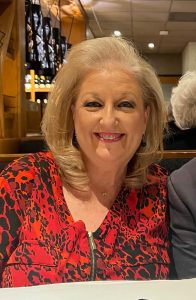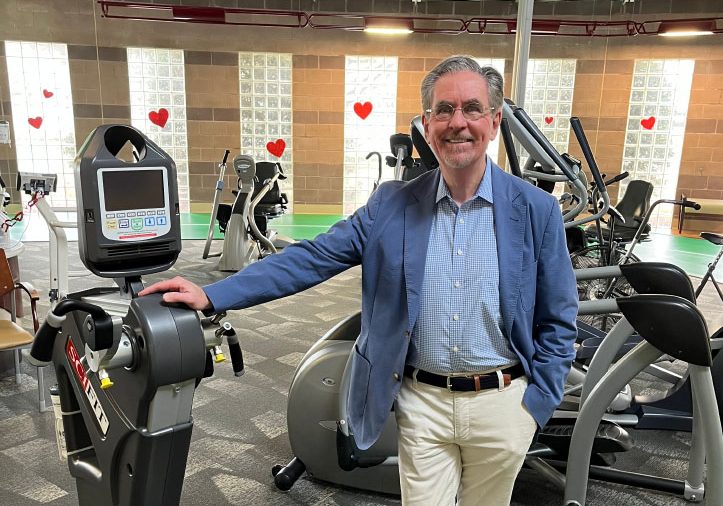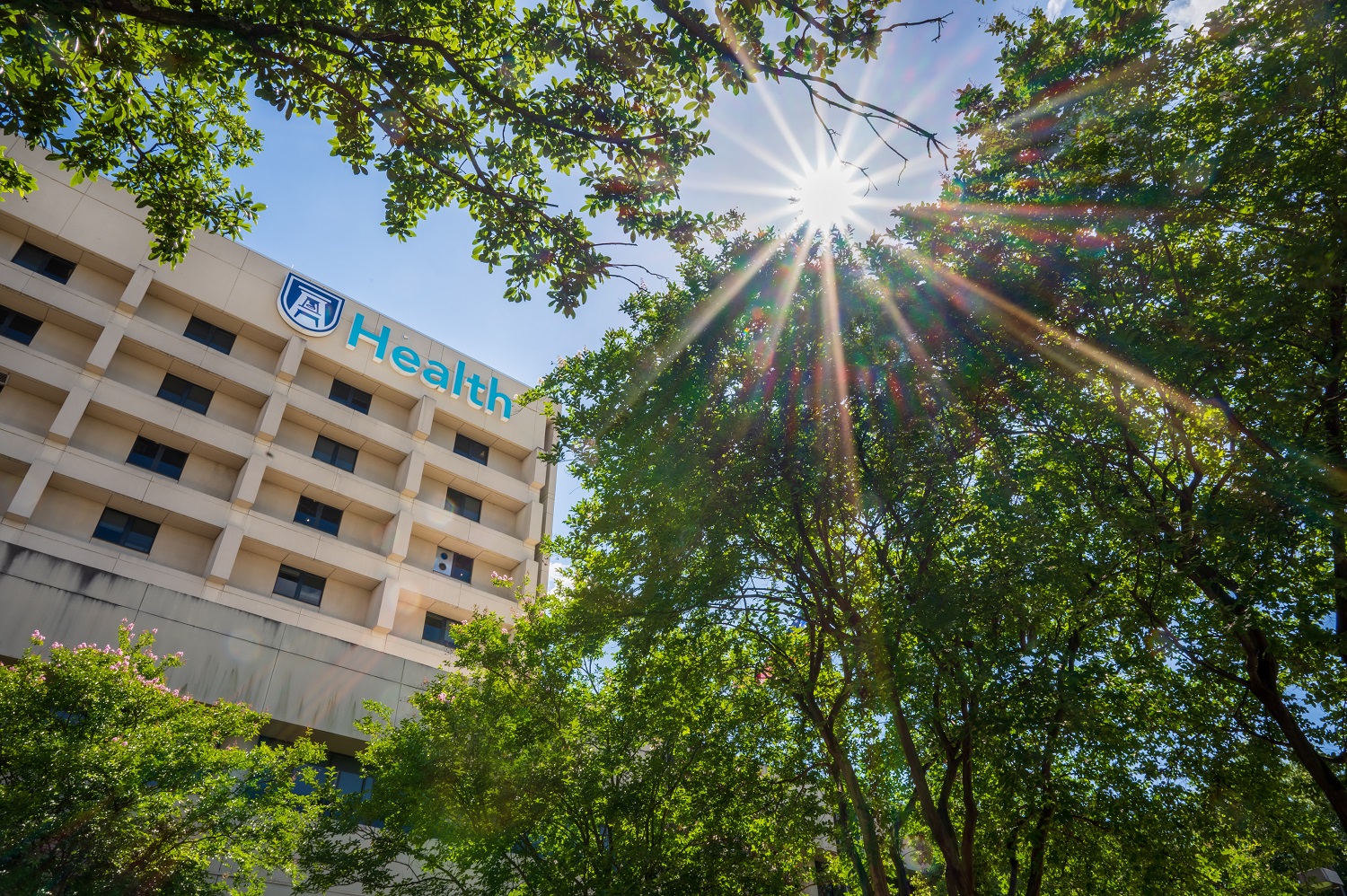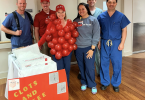If you asked Joanie Wilson to describe herself, her answer would be problem-solver. The 60-year-old has worked for 37 years as a burn nurse in Augusta and is always looking towards the next person to help, or the next crisis that needs tending to.
She didn’t realize until it was too late that what she needed to do was take care of herself. It’s something doctors at Augusta University Health’s Cardiovascular Disease Prevention Clinic work to accomplish with Wilson and the rest of their patients: the prevention or advancement of serious cardiovascular disease.
“You’re supposed to take care of yourself, supposed to go to the doctor even when you’re not sick, and I completely avoided that,” said Wilson. “I was working every day and my focus was elsewhere, and then these things all add up.”
Wilson had her big wake-up call on July 14, 2022. She was at work when she felt pressure build in her head. She ignored it and went about her day, chalking it up to a bad headache. Hours later, she realized she was having a major stroke and was taken to the ER. An emergency CT scan confirmed the clot in her brain several hours into the event.

Joanie Wilson is at a lower risk of cardiovascular problems for the next 10 years thanks to the work between her and the Preventive Cardiovascular Diseases Clinic.
“I was transferred over to the expert Stroke Team at AU Health, but I was already hours into this stroke. It’s a miracle I didn’t stroke out, fall on the floor and die right there,” said Wilson.
Doctors told her she was diabetic, a complete shock to the otherwise healthy Wilson. Her Hemoglobin A1C levels were more than twice as high as the normal range. She also knew that her family had a history of cardiovascular disease. Her father, who died two years ago, had a pacemaker and was a cardiac patient for years.
She said all this, combined with stressors at work and home, worsened her condition – contributing to the stroke.
She was eventually referred to Dr. Douglas Miller, a cardiologist at AU Health and Medical College of Georgia and the medical director of the Cardiovascular Disease Prevention Clinic, a new clinic in coordination with the department of Neurology, Radiology and Medicine Division of Cardiology.
“With current medical information, good clinic access, and with the ability to partner with others, we can make a difference in the primary prevention or secondary prevention of serious cardiovascular diseases,” said Miller.
Miller said the risk of developing cardiovascular disease is significant for patients in the city of Augusta and in suburban areas surrounding the city.
New drugs are available to help patients modify their risks of cardiac events such as stroke or heart attack. Normally, patients looking to lower their cholesterol and triglyceride levels would take statin medications. For some patients who have trouble managing some of the drugs’ side effects, newer injectable drugs can lower cholesterol levels in some by more than 50%.
The hope is soon these new drugs, which doctors at AU Health are making available through its outpatient pharmacies in infusion centers, will be more widely available and more affordable.
“That can be added to lifestyle changes for many patients,” said Miller. “Different people respond to different behavioral cues to eat better and exercise more often, so we adjust the treatment plan to reflect their receptiveness to lifestyle changes.”
Wilson has changed her lifestyle with her work through the Cardiovascular Disease Prevention Clinic. Her diet, exercise and understanding of cholesterol levels has brought her cardiovascular risk down. She said she knows how important this all is after her almost fatal stroke.
“It could have been as simple as a few years ago knowing my blood sugar was going up. I could have addressed it and wouldn’t have had the stroke. It’s so simple,” said Wilson.
Wilson has had to battle this while dealing with a personal tragedy. Her son, Andrew, died from a drug overdose in November. She spent years focused on her father’s health, whose dementia worsened in the last five years of his life, and on her son who was in and out of rehab.
She says even through the tough days, she tries to remain positive.
“I focus on the laughter that [Andrew and I] shared and the fun times we had. I just don’t understand that he died, and I lived,” she said. “I should have died because I had a major stroke, the doctors were pretty dumbfounded.”
She credits her faith, family, and friends after both deaths for encouraging her to look towards the positives. She said the grief and fatigue afterwards was significant but has been able to rest and worked on relaxation.
Wilson and Miller both believe she is on the right track. If she continues her lifestyle, continues her blood work, and puts in the effort, her doctors project that she is at a lower risk of cardiovascular problems for the next 10 years.
“My biggest takeaway from that clinic was the peace of mind at knowing the effort I made paid off,” said Wilson. “My goal is to keep moving towards a healthier category. Understand what is happening with my body and correcting it.”
The AU Health Cardiovascular Disease Prevention clinic is in three locations around the Augusta area and Miller hopes to expand the number of operating sites in the future. They are located at the Augusta University Care Center in Evans, Georgia, the Augusta University Cardiovascular Center and the Augusta University Neuroscience Center, both in downtown Augusta, Georgia.



